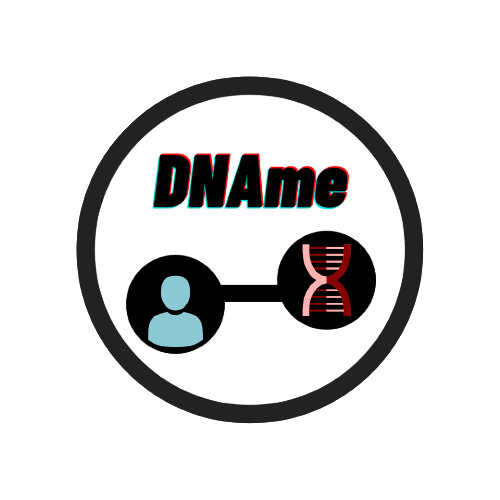Would you like to have your name in DNA format? Try this funny app made using R and Shiny that converts your name to a sequence of DNA or mRNA. To do so, DNAme takes each letter of your name as a one-letter code aminoacid and then, it looks for the codon that codes for that aminoacid. It is possible to choose between DNA or mRNA nucleotides, as well as, using the codon usage of diverse organisms. Nevertheless, there are some letters (i.e. B, Ç, J, U, X, …) that are not associated to any aminoacid and hence, names containing these letters cannot be transformed to DNA nor mRNA.
What is DNAme?
DNAme is an application for teaching/learning purposes which converts a word to a DNA sequence. It has some theory to understand the processes underlying this conversion, but this theroy must not be used with teaching puroposes because it may have some inaccuracies.
How DNAme works?
Summary
DNAme was designed using R/Shiny that takes your name as a sequence of one-letter aminoacids and converts them to DNA/mRNA by looking for the codon that codes for each aminoacid.
One-letter code for aminoacids
Since most aminoacids are coded by more than one codon, it takes the codon usage of several species into account, selecting the most frequent codon based on genescript’s codon frequency tables. Currently the available organisms are human and mouse, but the idea is to have some of the most used model organisms (i.e. A. thaliana, D. melanogaster, E. coli, …).
Not all names
It has to be taken into account that not all names can be converted to DNA/mRNA, because not all letters have an associated aminoacid. Hence, if a letter in your name is not possible, DNAme will throw an error message. You have two possibilites:
- Choose another word, such as a nickname or a surname.
- Play with phonetics. For example, if your name contains an X you could change it by a combination of letters with a similar sound like KS, which are Lysine and Serine.
Parameters
DNAme allows to select diverse parameters:
- Nucleic acid: DNA or mRNA
- Organism (for the codon usage): Human or Mouse
- Separator: character to separate the codons (i.e. a dash, a blank space, nothing).
- in the future Use extra letters.
Availability
DNAme is available here as a working application. This version is deployed to shinyapps.io and only one person at a time can be connected to the app.
To download the source code, go to the Github repository and clone it. Then open R or RStudio, go to the DNAme directory (with setwd()) and run shiny::runApp("app.R") in the R console. In this case you will need to install some R packages:
shinydplyrmagrittrstringr
In the future, I want to build it as a Desktop app using photon, but at the moment, this option is not available.
